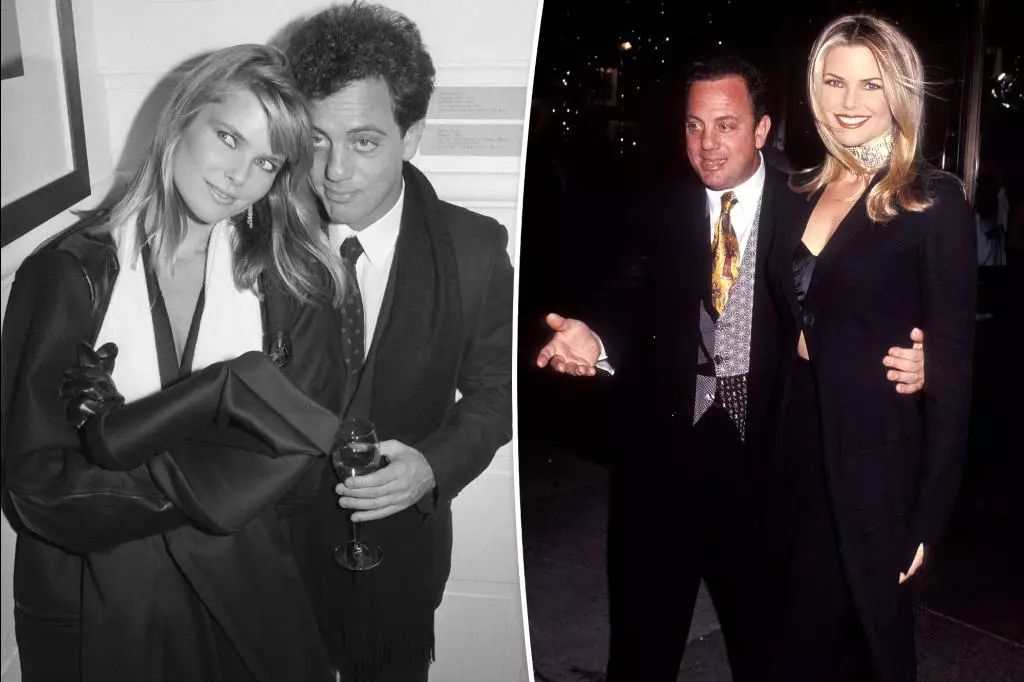In her newly released memoir, “Uptown Girl,” Christie Brinkley bravely sheds light on her tumultuous relationship with Billy Joel, a journey laden with the complexities of love, addiction, and family. Brinkley’s decision to recount these painful memories reflects a powerful act of self-exploration, inviting readers to grapple with the impacts of alcoholism not just on the individual, but also on their loved ones. It is a testament to her resilience, as well as a candid look at the human experience of yearning for connection amidst adversity.
One particularly vivid moment from the memoir recounts Joel’s drunken episode where he allegedly devoured spaghetti straight from the pan, blaming family members for the missing food. Brinkley admits hesitancy about sharing this embarrassing episode, revealing the often tough decision to present the raw truths that underpin intimate relationships. This moment encapsulates the larger narrative of her marriage, characterized by the stark contrasts of love and fear. By choosing to include such anecdotes, Brinkley underscores the chaos that addiction can introduce into the lives of those who care deeply for someone ensnared in it.
The Veil of Silence
Brinkley’s reflections prompt readers to ponder the silence that often shrouds the realities of addiction. For years, she shielded the details of her struggles within her marriage from friends and the media, largely to protect both herself and the façade of family life. This careful avoidance not only illustrates the societal stigma surrounding addiction but also highlights the loneliness that accompanies such secrecy. In opening up, she not only liberates herself but also serves to validate the experiences of countless individuals who suffer in silence alongside their loved ones battling similar issues.
“It was very difficult, but we had a child together, and I was trying to protect the family,” she remarked during a recent interview, a sentiment echoed by many who find themselves in analogous situations. This protective instinct is a double-edged sword: it safeguards family unity but it can also stifle personal healing, perpetuating a cycle of hidden pain. Brinkley’s willingness to confront that duality is both brave and necessary, showing that healing often involves confronting uncomfortable truths.
Love in the Face of Addiction
The complexity of loving an addict is masterfully illustrated through Brinkley’s narrative of love intertwined with fear. While her devotion to Billy Joel was unwavering, the darkness of his alcoholism consistently threatened to overshadow their love story. Brinkley understood on some level that addiction is a disease, a reality that complicates the emotional landscape of any relationship involved. Her statements reflect a poignant awareness of the dual roles encompassed in such bonds: the adoration often shares space with the haunting fear of losing the person you love to their demons.
Furthermore, Brinkley’s empathy for Joel’s struggles begs the question of how far one should go to support a partner amid their battles. She held on for a staggering eleven years, filled with the hope that perhaps her love could be the catalyst for change. Ultimately, this raises ethical discussions about dependence and independence in relationships marred by addiction. When does love turn into a burden? When does support become enabling? Her story drives these inquiries to the forefront, forcing introspection.
After the Storm: Finding Friendship
Over three decades after their divorce, Brinkley claims that she and Joel maintain a “great” friendship, a reconciliation that might astonish those who view their past through the lens of turbulence. This evolution represents not just a triumph of maturity and understanding, but also the possibility of healing post-separation. While their romantic relationship faltered under the weight of Joel’s alcoholism, their ability to forge a friendship demonstrates the often surprising ways love can endure even after traditional ties have been severed.
Brinkley’s journey reflects not only the scars of her past but also her commitment to personal growth and familial bonds. Despite their rocky history, she emphasizes the joy in their shared role as parents. This layered narrative encourages readers to recognize that relationships can evolve and that even painful endings may lead to new beginnings—albeit not without their struggles.
In sharing her vulnerabilities, Brinkley empowers others to confront their own complicated relationships with honesty and courage, illuminating the intricate connections between love, loss, hope, and resilience.

